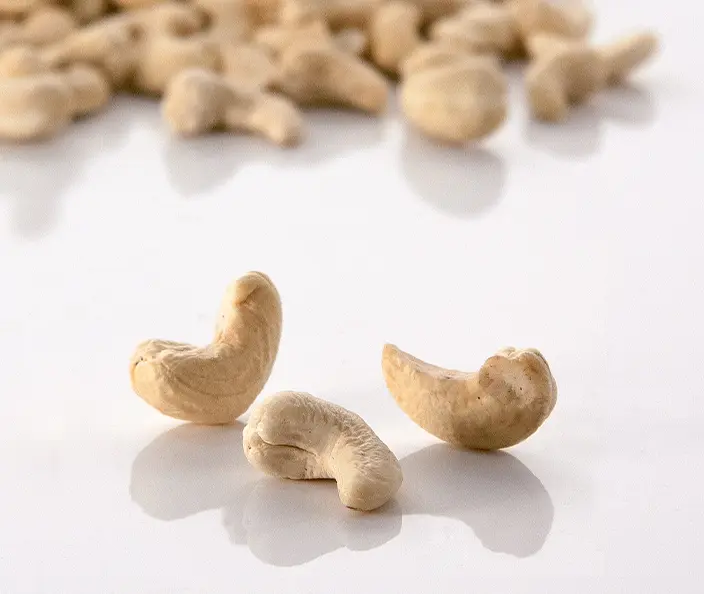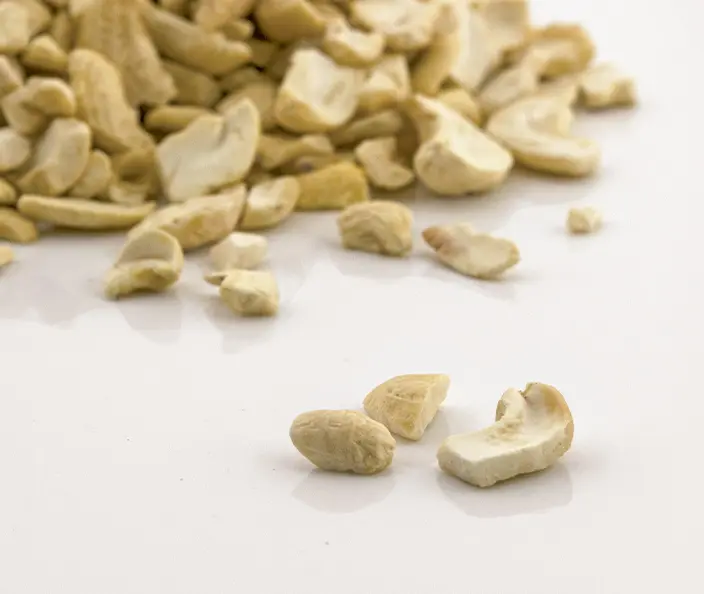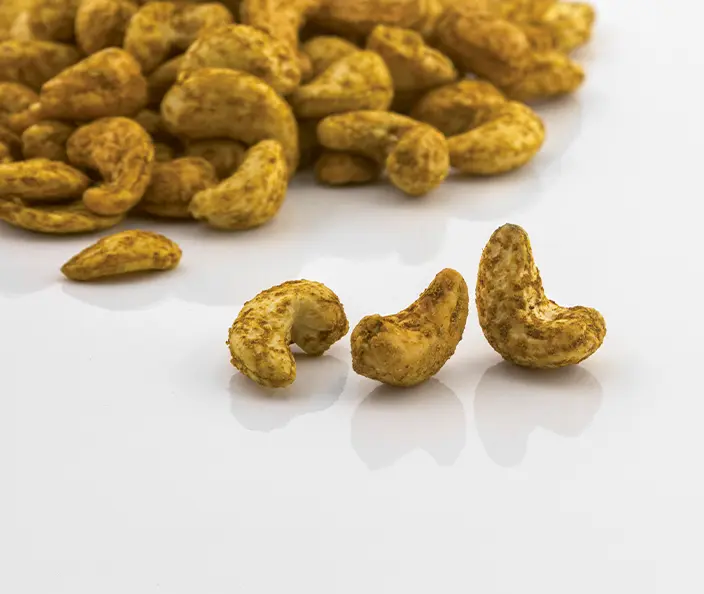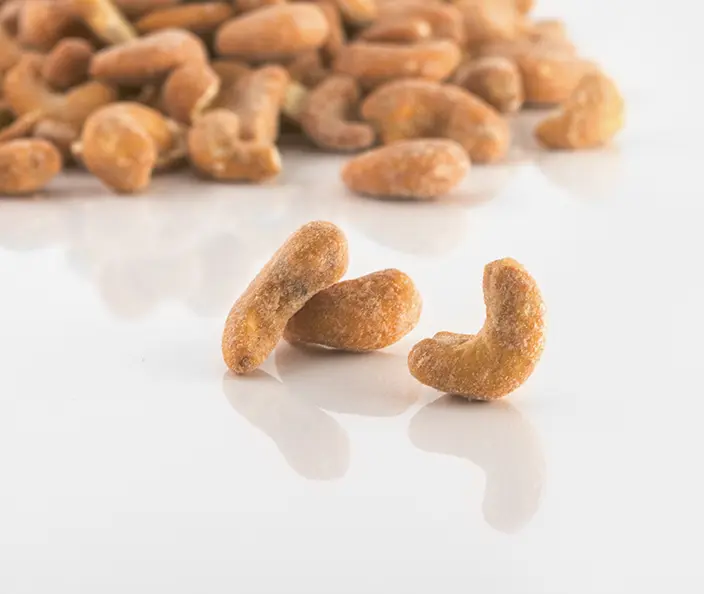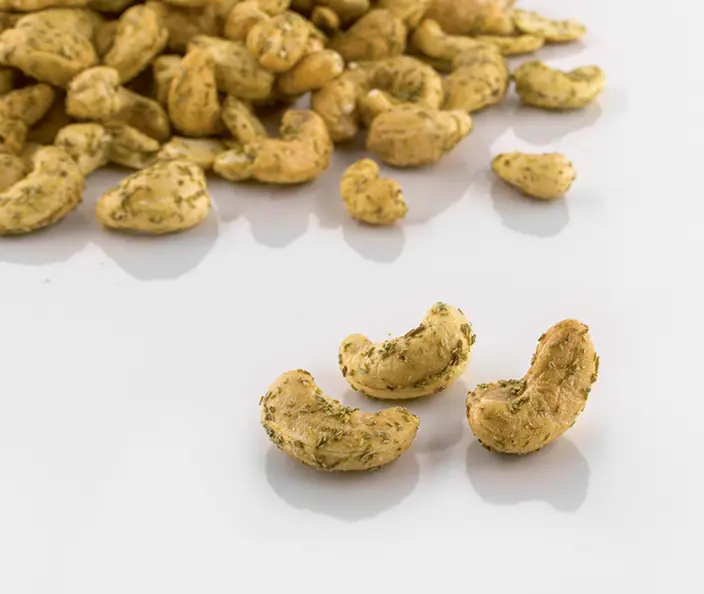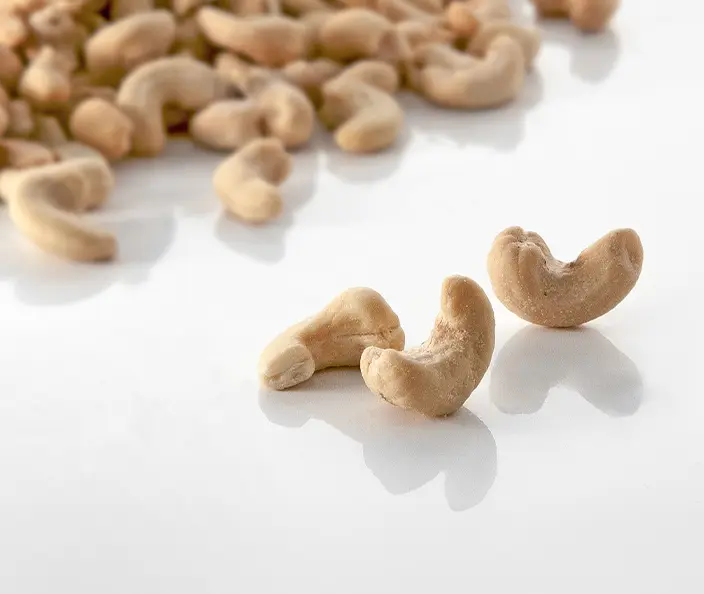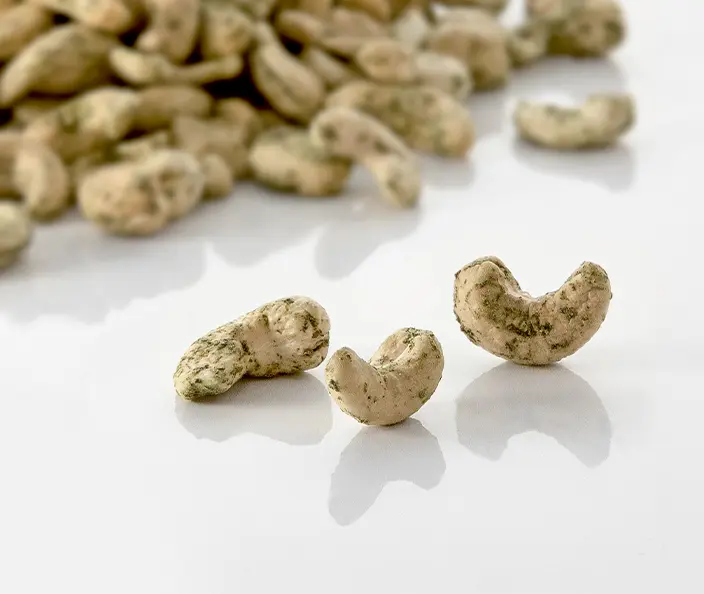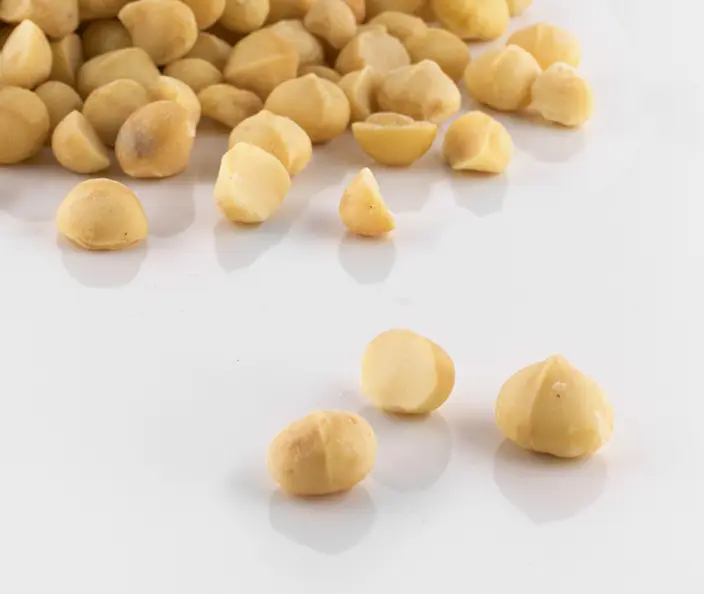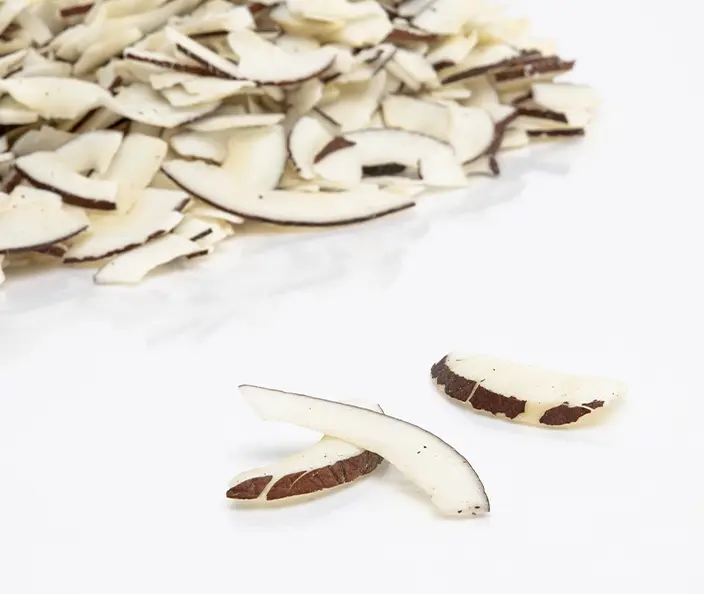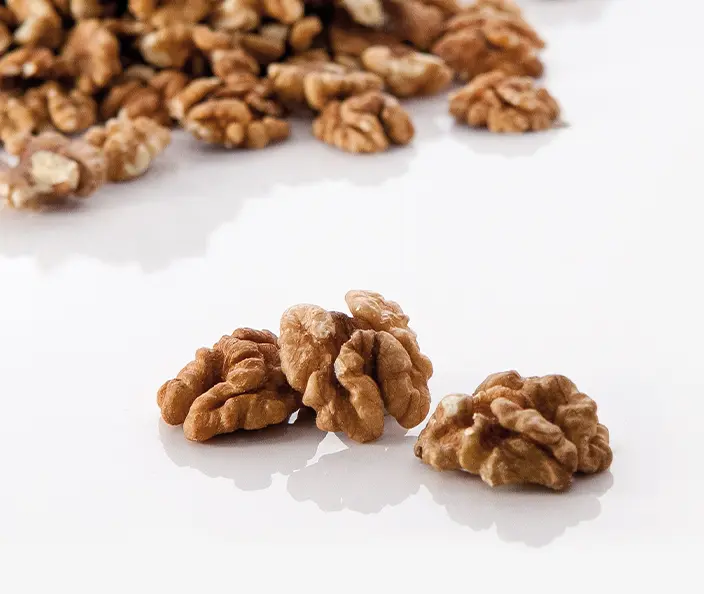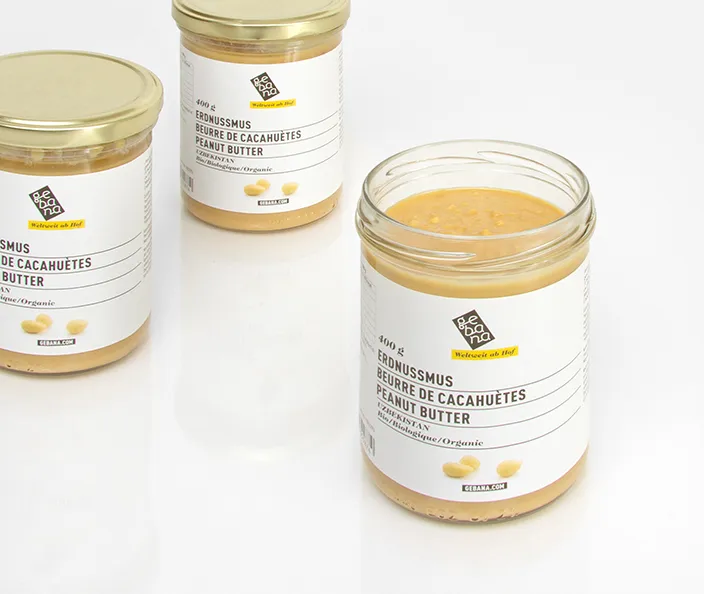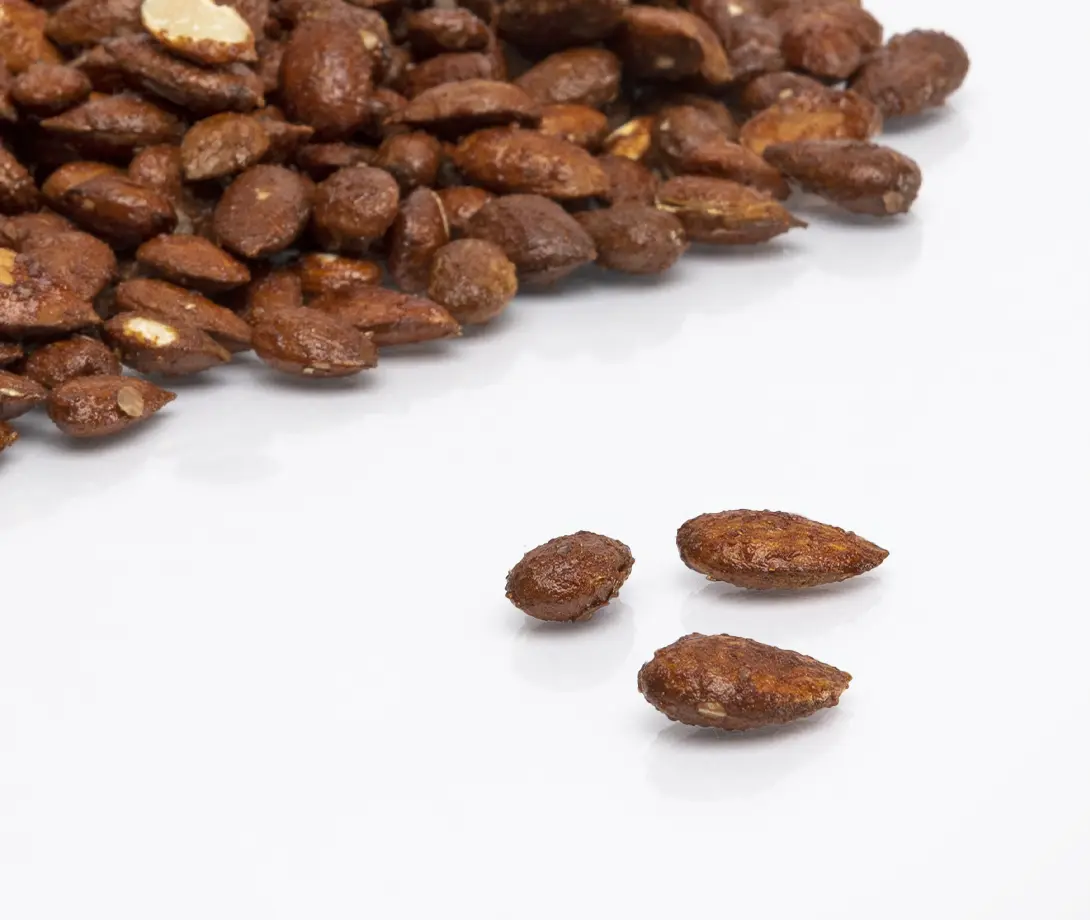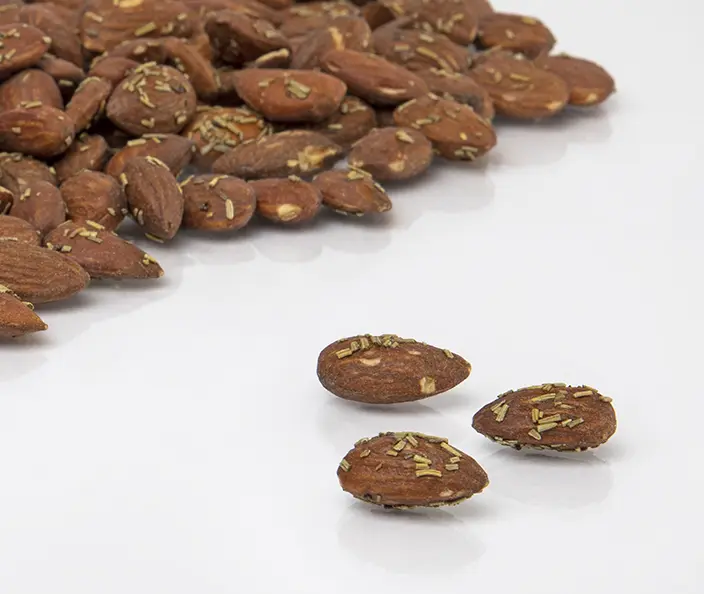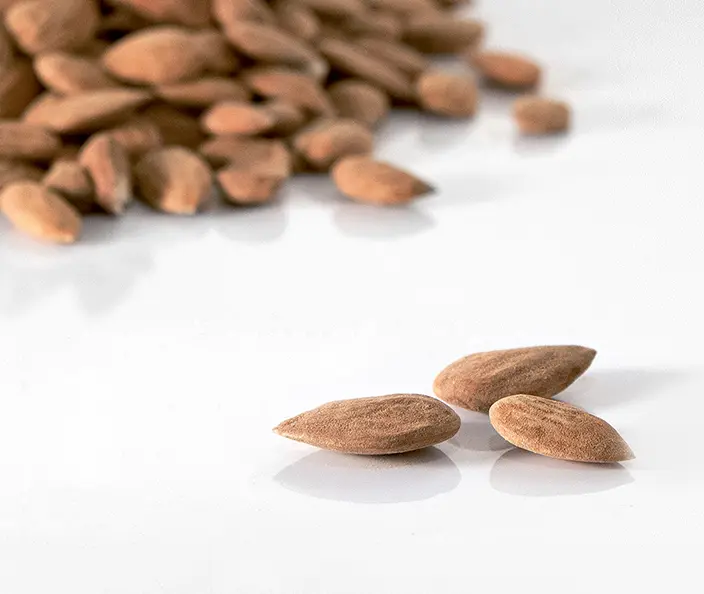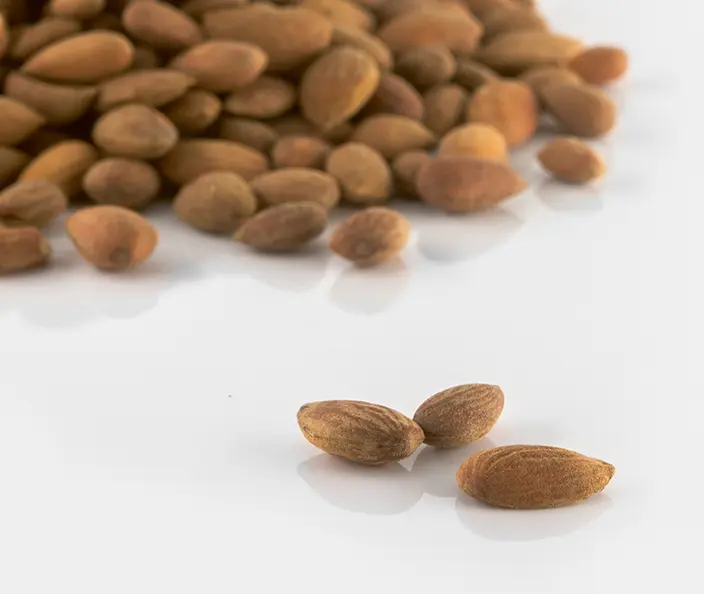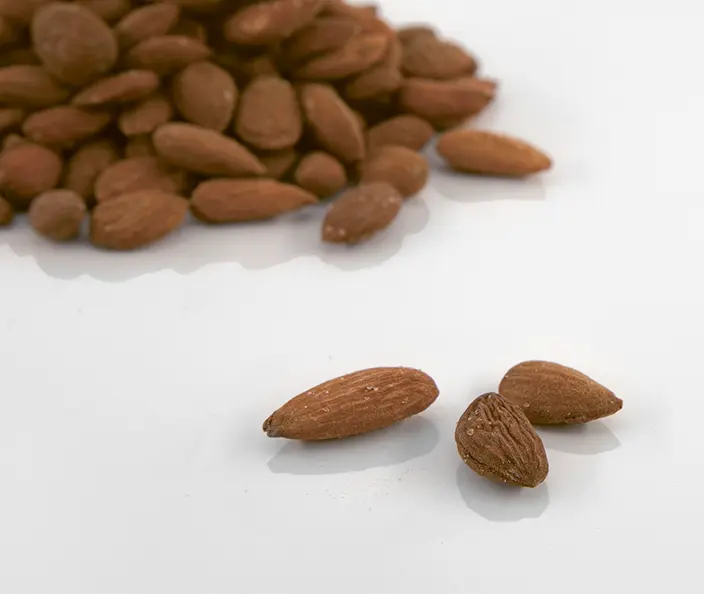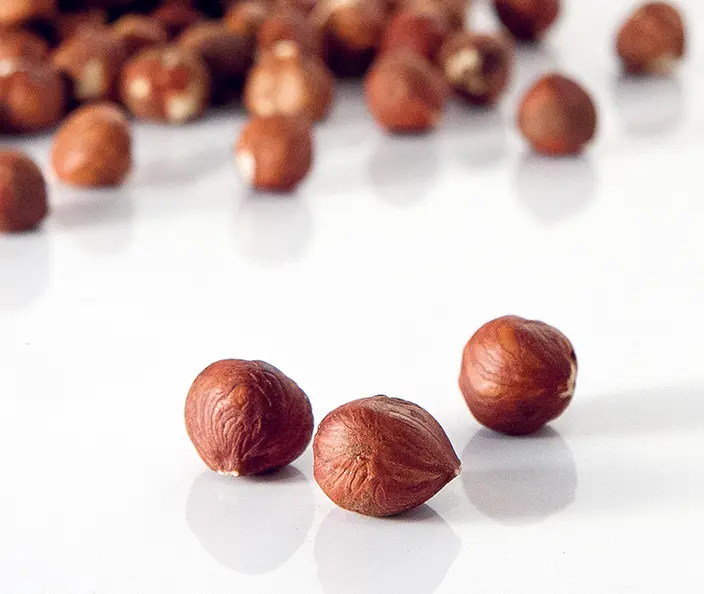Nuts are high in protein, fibre, and vitamins — ideal sources of energy with a good carbon footprint: per kilocalorie, they produce fewer greenhouse gases than many other protein sources. However, problems such as water shortages, pesticides, and poor working conditions undermine their sustainability. Almonds, for example, are mostly grown in dry regions such as California, but require a lot of water. Their cultivation worsens droughts and harms bees through monoculture, pesticides, and transport routes. Our almonds, for example, come from small farms in the mountains of Pakistan, grown without pesticides and irrigated with spring water. Produced in this way, nuts can become an opportunity for entire regions.
Processing nuts where they grow improves local value creation, creates jobs, and strengthens the local economy. These jobs are often low-skilled and require no formal training. This opens up income opportunities that would otherwise be unavailable, especially for people without access to education. In our cashew factory in Burkina Faso, for example, it is mainly women who work in processing. Many have no school education and find it difficult to find a job with good conditions. Working in our factory provides women with a stable income, an employment contract, social security, and health insurance. Workers with children have access to a company nursery and a medical clinic.
Store nuts and seeds in a cool, dark place in a tightly sealed container. Make sure that the container is as airtight as possible so that moisture cannot reach the nuts. To extend their shelf life by several months, you can also freeze them.

 Login
Login




